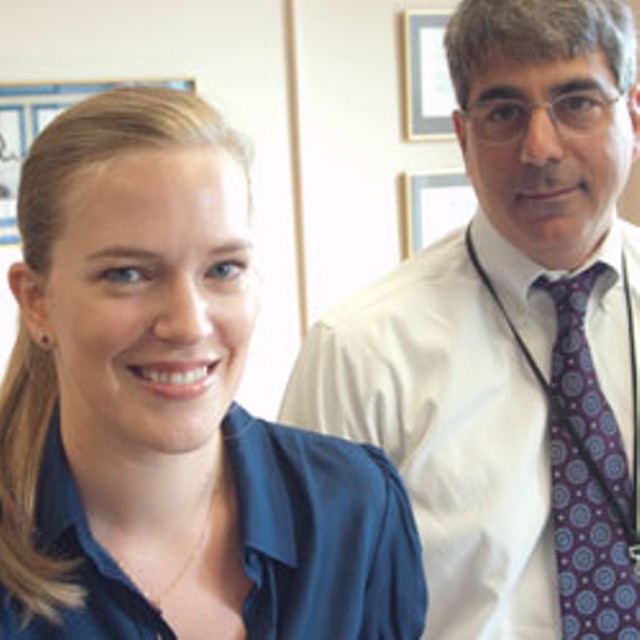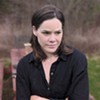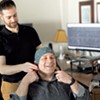Published June 1, 2011 at 9:28 a.m.
One of Vermont’s oldest and most venerated small businesses — the independent family physician — may soon be as quaint and outdated as the house call. A combination of economic stressors and changing lifestyle goals among younger practitioners is dramatically reshaping Vermont’s medical landscape. Today, many of Vermont’s older physicians are either selling their practices to local hospitals or simply retiring. Meanwhile, experts say that many medical students and younger residents intend to work for a hospital, health center, university or research facility rather than to start their own medical practices.
Earlier this year, Vermont’s largest independent cardiology group, Champlain Valley Cardiovascular Associates, announced that it was closing its offices in Rutland and Middlebury. Most of CVCA’s physicians joined Vermont hospitals, and one retired. Two docs still work out of the CVCA office in South Burlington; reportedly, they’re the last two independent cardiologists in the state. They declined to explain the reasons for CVCA’s breakup or why they’ve decided to stick it out.
Paul Harrington, executive vice president of the Vermont Medical Society, says the closure of long-standing independent medical offices such as CVCA is “an accelerating trend” in Vermont. These days, he says, doctors are more inclined to accept salaried positions at hospitals and critical-care centers rather than take on the daunting challenge of starting a small business in a rapidly changing health care environment. Plus, in 2009 the typical med student graduated with an average debt of $132,000, according to the American Medical Association. Borrowing even more to start a business represents a lot of risk.
“Younger physicians have seen the writing on the wall. They want to spend time with their kids and watch them grow up, as opposed to working 12- to 14-hour days,” he says. “They also want to be insulated from the administrative burdens of having to deal with multipayers and the complexity of regulations that are more a part of being in independent practice.”
In recent years, the Vermont Medical Society has seen a number of decades-old medical practices suddenly close their doors, Harrington adds. He points to several factors, including low reimbursement rates for patients who are on Medicaid.
What does this trend mean for Vermonters? Harrington says it depends on where patients live and what sort of care they require. It shouldn’t have an impact on most individuals’ access to primary-care physicians as long as those docs stay in their local communities, he says. In some cases, however, physicians who relocate or retire may be very hard to replace, creating significant access problems.
Because Vermont competes on a national stage for doctors, it has long struggled to recruit primary-care physicians from out of state, especially to rural and remote areas. Last month, for example, a report by the Department of Vermont Health Access revealed that Vermont has a shortage of more than two dozen primary-care physicians. By 2015, when federal universal-access requirements kick in, that deficit is expected to climb to 63.
“It certainly ends that model we all carry around with us, where you go to your family physician’s office that you’ve been going to since you were a kid,” Harrington adds. “It’s a very different model.”
And a different financial picture. There is some truth to the stereotype of the Jaguar-driving, golf-playing internist. But as more Vermont doctors affiliate with hospitals — the figure is now about 60 percent, reports Burlington health care expert Jeanne Keller — their incomes are declining. Between 1995 and 2003, the average inflation-adjusted incomes of physicians dropped 7.1 percent, from $180,930 to $168,122.
One survival strategy being employed by an increasing number of private practices is “concierge medicine.” Physicians require their patients to pay a monthly fee — which is not covered by insurance — for improved access to the doc. It’s akin to keeping an attorney on retainer. Patients don’t have to wait as long to see their health care provider, since concierge doctors tend to have fewer patients overall. Meanwhile, docs can spend more time with each patient, because they get paid either way; their compensation is no longer dependent on an accepted diagnosis and its corresponding insurance reimbursement code.
But concierge medicine has its critics. They warn it creates a two-tiered system of medical care that benefits the wealthy. In April, the New York Times reported the AMA’s written policy on concierge medical practices states that, while it’s part of the “pluralism in the delivery and financing of health care,” it also raises “ethical concerns that warrant careful attention.”
Currently, only one doctor in the Burlington area appears to be practicing concierge medicine. Frank Landry declined an interview request to talk about his business, and the VMS’ Harrington was unaware of any other physicians using that approach.
Another trend in local medicine: The very institution that is hiring doctors from medical practices throughout Vermont and northern New York is investing time and money to teach physicians how to better manage their own small businesses. The University of Vermont Medical Group at Fletcher Allen has about 500 affiliated physicians and a $250 million revenue stream, according to its president, Paul Taheri, a trauma surgeon who earned an MBA at the University of Michigan.
Taheri came up with the novel idea of teaching medical practitioners the fundamentals of running a small business. Two years ago he launched the Center for Health Care Management, which offers a “mini-MBA” program to doctors, nurses, administrators and other health care providers. The five-day course is taught one Friday each month during the fall and spring semesters. It covers a range of topics, including marketing, financing, operations management and business strategies.
Make no mistake, Taheri’s goal isn’t to reverse the current trend of medical practices becoming affiliated with larger institutions. Obviously, as someone who manages Fletcher Allen’s overall practice, he’s a strong proponent for larger systems, which, he contends, are more efficient, provide a more standardized level of care, and offer better access to ongoing training, electronic records and new technologies.
Rather, Taheri’s goal is to help all medical practitioners improve the skills they need to understand the medical and financial implications of their decisions. The University of Vermont Medical Group now has more than 50 remote sites, each of which operates with some degree of autonomy. “These physicians and/or nurse-administrators are really running mini-franchises, and they have to have those management tools in their own pockets,” Taheri explains. “It can’t be solely managed centrally. It won’t work efficiently. So, we need an army of people who get it.”
For example, he says, when a doctor schedules surgery, the timing has implications not only for the patient’s physical well-being but for the total cost of that procedure.
“Remember, if you sit around doing biochemistry all day, you don’t know anything about economics,” he adds. “And, quite frankly, that’s why there’s such a huge historical disconnect between administrators and clinicians. They literally speak a different language.”
Abigail Trutor, program director of the Center for Health Care Management, says the mini-MBA program has been enormously popular in the community. About 150 people have already taken it — and they’re not just Fletcher Allen-affiliated providers. Independent doctors in the community have also signed up, as have a handful of senior residents and med students. Trutor also notes that there are preliminary talks with the incoming dean of UVM’s School of Business Administration, Sanjay Sharma, to create a new program called “the business of health care.”
The biggest nut to crack will be the medical school curriculum itself, Taheri notes. Although it’s never been more important for doctors to understand the finances of health care, the ever-increasing demands on medical students’ time make it unlikely that business courses will find their way into a medical education. Given the choice, most of us would still rather our doctors know how to read an X-ray, Taheri notes, than a profit-and-loss statement.
More By This Author
About the Artist

Matthew Thorsen
Bio:
Matthew Thorsen was a photographer for Seven Days 1995-2018. Read all about his life and work here.
Matthew Thorsen was a photographer for Seven Days 1995-2018. Read all about his life and work here.
Speaking of...
-

Bracing for a Property Tax Hike, Lawmakers Drop Bid to Give Themselves Raises
Feb 15, 2024 -

Vermont Lawmakers Take Another Shot at Increasing Their Pay
Jan 10, 2024 -

'We Must Act Now': Burlington Council Passes Resolution on Drug Crisis, Public Safety
Oct 11, 2023 -

Q&A: Chet and Kate Parsons Talk About Their Final Lambing Season in Richford
Apr 12, 2023 -

Video: Last Lambing Season for Chet and Kate Parsons at the Parsons’ Farm in Richford
Apr 6, 2023 - More »
Comments
Comments are closed.
From 2014-2020, Seven Days allowed readers to comment on all stories posted on our website. While we've appreciated the suggestions and insights, right now Seven Days is prioritizing our core mission — producing high-quality, responsible local journalism — over moderating online debates between readers.
To criticize, correct or praise our reporting, please send us a letter to the editor or send us a tip. We’ll check it out and report the results.
Online comments may return when we have better tech tools for managing them. Thanks for reading.














































